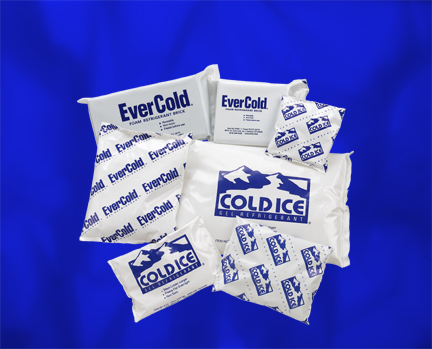 Due to the complexity of patient care, Strong Memorial Hospital (SMH) consumes vast quantities of materials. Many biological and safety restrictions require that certain items be disposed of, instead of the preferred choices, reuse or recycling. Similarly, the nature of work at SMH contributes to the challenges with recycling – employees are very busy and focused. As a result of these factors implementing recycling programs often requires additional effort and creativity.
Due to the complexity of patient care, Strong Memorial Hospital (SMH) consumes vast quantities of materials. Many biological and safety restrictions require that certain items be disposed of, instead of the preferred choices, reuse or recycling. Similarly, the nature of work at SMH contributes to the challenges with recycling – employees are very busy and focused. As a result of these factors implementing recycling programs often requires additional effort and creativity.
One heartening example is happening at the Blood Bank and Transfusion Medicine Unit laboratory. This department is responsible for determining blood types, performing tests to ensure transfusions are safe and effective, and preparing blood products for patients. Consequently a large variety of outside components, including chemical reagents, are shipped to the facility. Many of these items are temperature-sensitive and surrounded by large numbers of reusable cooling gel or ice packs. Since the laboratory has refrigeration facilities, these cooling packs are traditionally discarded.
As a result, Axel Kairies, Administrative Assistant at the Blood Bank, witnessed many wasted cooling packs. He and other co-workers would remark, “Well, that’s a shame! Really wish somebody could do something about that!” In response, Mr. Kairies and co-workers made an effort to reuse the cooling packs by bringing them home and to keep food and drinks cool during family outings.

Despite this practice, many cooling packs still went to waste. Mr. Kairies took the initiative and contacted the University’s Recycling Office. Through combined efforts, an organization was found that needed the cooling packs. Meals On Wheels Association of America is a national organization that every day provides over one million meals to senior citizens and requires the cooling packs to preserve perishable food during transport.
Starting in October of 2010, Mr. Kairies and other volunteers delivered cooling packs to Meals on Wheels. After the first 3 months of the project, a total of 450 cooling packs (543 pounds) were donated. In 2011 over 1,750 pounds of cooling packs were saved from becoming waste, and so far this year, over 1,000 pounds of cooling packs were reused.
Mr. Kairies and the volunteers professionally document the “Cooling Pack Reuse Program”. Already in 2012, there was documentation of over 100 different vendor shipments, the brand of cooling pack, and the amount of packs. The cooling pack industry is surprisingly diverse and tracking each brand is not easy. Data collected this year details a total of fourteen different brands such as “Polar Bear”, “Refreez-R-Brix”, and “Koolit”.
The meticulousness of the program contributes to its growth and expansion. Jared Munir of the Goldman Laboratory, in the School of Medicine & Dentistry, volunteered to participate in the Cooling Pack Reuse Program by bringing his laboratories’ cooling packs to Mr. Kairies.
 Thoroughly committed to recycling, Mr. Kairies dumpster dives around his workplace and salvages discarded styrofoam. When asked if his colleagues view him as eccentric in his enthusiasm for environmental sustainability, he chuckles and says that he actually finds that most of his co-workers do want to see materials which are recyclable and potentially reusable diverted from the trash bins they often occupy. It appears that the difference lies in whether or not that sentiment gets translated into action.
Thoroughly committed to recycling, Mr. Kairies dumpster dives around his workplace and salvages discarded styrofoam. When asked if his colleagues view him as eccentric in his enthusiasm for environmental sustainability, he chuckles and says that he actually finds that most of his co-workers do want to see materials which are recyclable and potentially reusable diverted from the trash bins they often occupy. It appears that the difference lies in whether or not that sentiment gets translated into action.
The dedication of volunteers like Mr. Kairies embodies the spirit of environmental sustainability encouraged by the University. If your department has clean cooling packs which could be reused, please contact the Recycling Coordinator, Amy Kadrie (585-362-5739).



Wonderful content as always. I love how you talk about the projects and topics in detail. Keep the articles coming.
Well described! Keep up the good writing.
I want to express my gratitude to this writer who writes very well and covers all the information on the topic. I have never read this information before. This is really an amazing topic which means a lot.
After studying a few of the blog posts on your website now, I truly like your way of blogging. I just would like to give a huge thumbs up for the great info you have here on this post. I will be coming back to your blog for more soon.
Since ice packs aren’t contaminated, I am putting my over my house plants!
Roberta- Most packs can be reused multiple times. Simply put them in the freezer when needed to get them ready for use. But if they are broken or otherwise unusable, disposing the liquid inside down the sink is safe and the material is not toxic. Thanks!
What to do with used packs? Spill them down the sink or store them in freezer?
Great article. Thanks for sharing the valuable information. Food delivery ice pack
Can you put it on potting soil
This location is that very good.
Hi, Jean. From what I understand this program is at capacity and cannot take any additional packs aside from what we normally send them. If you are from a URMC department, please email me directly at amy.kadrie@rochester.edu with your department name and approximate quantity per month that your area generates, and I will look into this further for you. Thanks!
Where do I send the ice packs?
Thanks
Thanks For the post and for the information.
If repairing an existing unit is more cost effective, whether it be in the field or in one of our plants, Precicol Heat Exchanger has the expertise, experience and resources to get the job done.